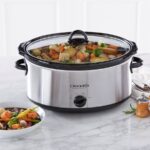Do you need to make an egg-cellent meal but are short on time? Have you ever wondered can you hard boil an egg in a microwave? Well, you’re in luck! You can quickly and easily use a microwave oven to cook a perfect hard boiled egg. In this blog post we will explain the basics of how to achieve great results for cooking eggs in a microwave. We’ll discuss all the tips and tricks so that regardless of whether it’s breakfast, lunch or dinner, your eggs will always turn out tasting delicious.
Contents
What Is Hard Boil An Egg?
Hard boiled eggs are a popular breakfast and lunch item that can be cooked in many different ways. To get the best results, you want to ensure that the yolk of the egg is completely cooked through with no traces of liquid left inside. A hard boiled egg should have a firm texture throughout, with no raw or runny sections.
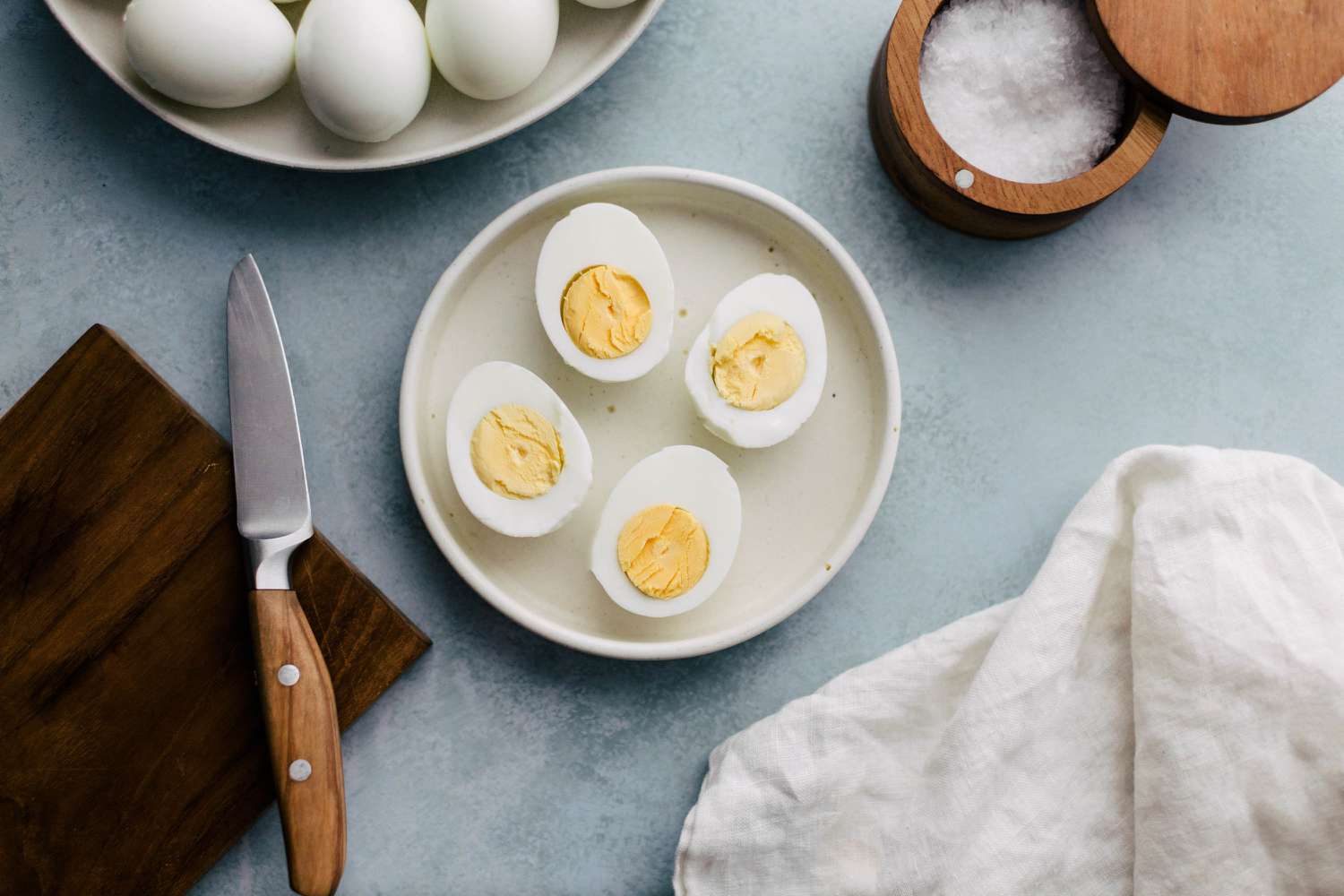
What Is Microwave?
A microwave oven is an electric kitchen appliance that uses electromagnetic radiation from microwaves to quickly heat and cook food. Microwave ovens are typically used for reheating food, defrosting frozen items, and cooking certain types of dishes such as popcorn and some types of eggs.
Can You Hard Boil An Egg In A Microwave?
So, can you hard boil an egg in a microwave? Yes, you can. Hard boiling an egg in a microwave is easy and fast, and it produces great results. It’s also surprisingly similar to the traditional method of boiling an egg on the stovetop. Here’s how to do it:
- Start by filling a large bowl with water until it is roughly two-thirds full. Add a few drops of white vinegar to the water. This helps keep the eggshells from cracking during cooking.
- Gently place your eggs in the water and cover them with a lid. Place the bowl in your microwave oven and set it on high power for approximately 3 minutes.
- After 3 minutes, carefully remove the lid and use a spoon to remove the eggs from the water. The shells should have softened slightly, making it easier to peel them off.
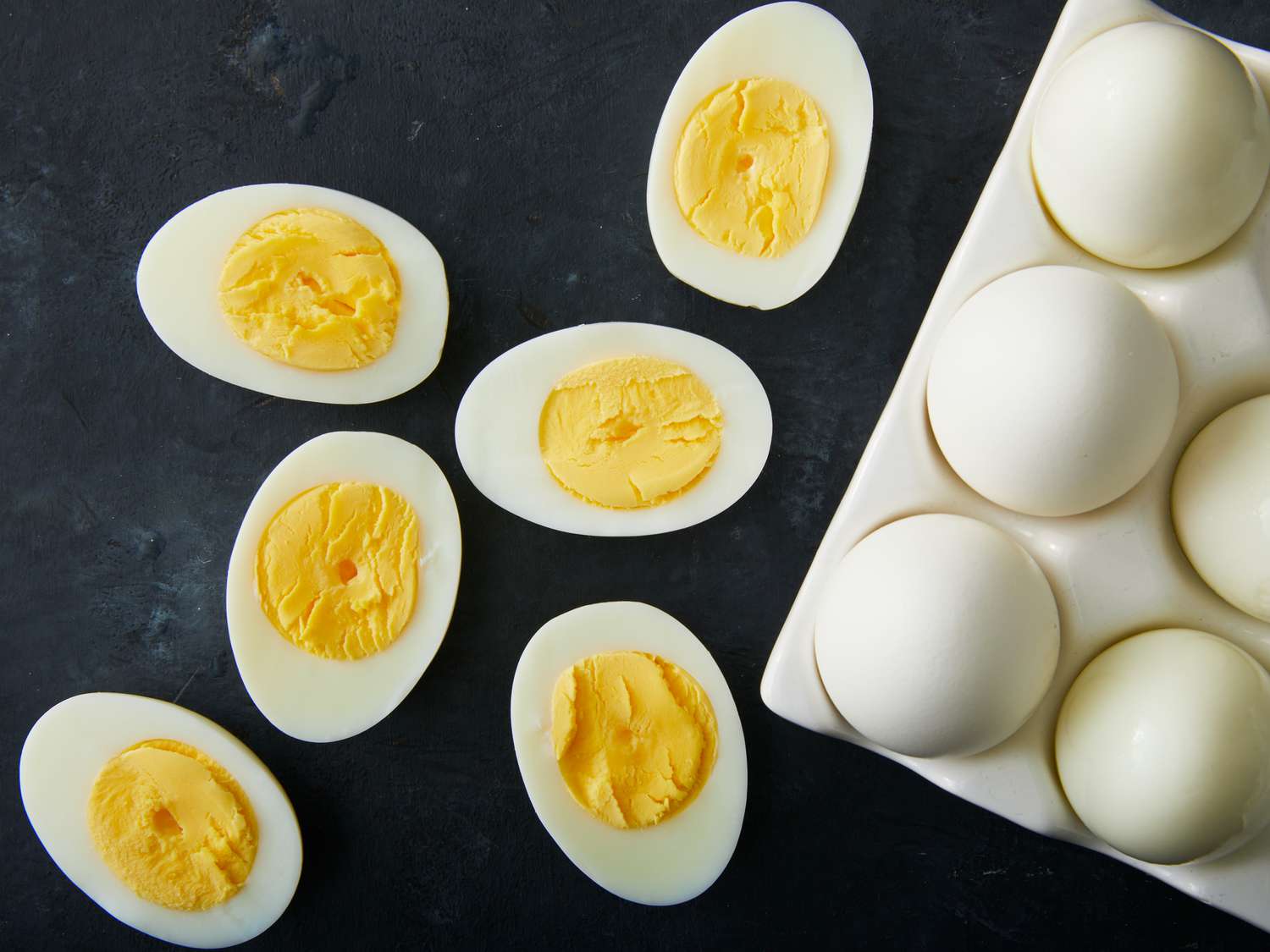
Factors Affect To Hard Boil An Egg In A Microwave
When you are hard boiling an egg in a microwave, there are several factors that you need to keep in mind as they can affect the outcome of your eggs.
- The size of the egg: Larger eggs have more yolk and whites which require longer cooking time than smaller ones.
- The wattage of the oven: Different microwaves have different wattages, which can affect the cooking time of the eggs.
- The amount of water: Too little or too much water can reduce the heat and therefore extend the cooking time.
- The type of bowl used: Different materials absorb microwaves differently, so it’s important to use a microwave safe bowl.
Why Should You Know Can You Hard Boil An Egg In A Microwave?
Knowing can you hard boil an egg in a microwave is beneficial not only for convenience but also for health. Instead of having to wait for the water to boil on a stove, you can have your boiled eggs ready in minutes by using a microwave oven. This helps reduce the risk of overcooking which leads to less nutrient loss from the eggs.
In addition, you can easily prepare a large number of eggs at once using the microwave. This is great if you need to make multiple egg dishes for a meal or event.
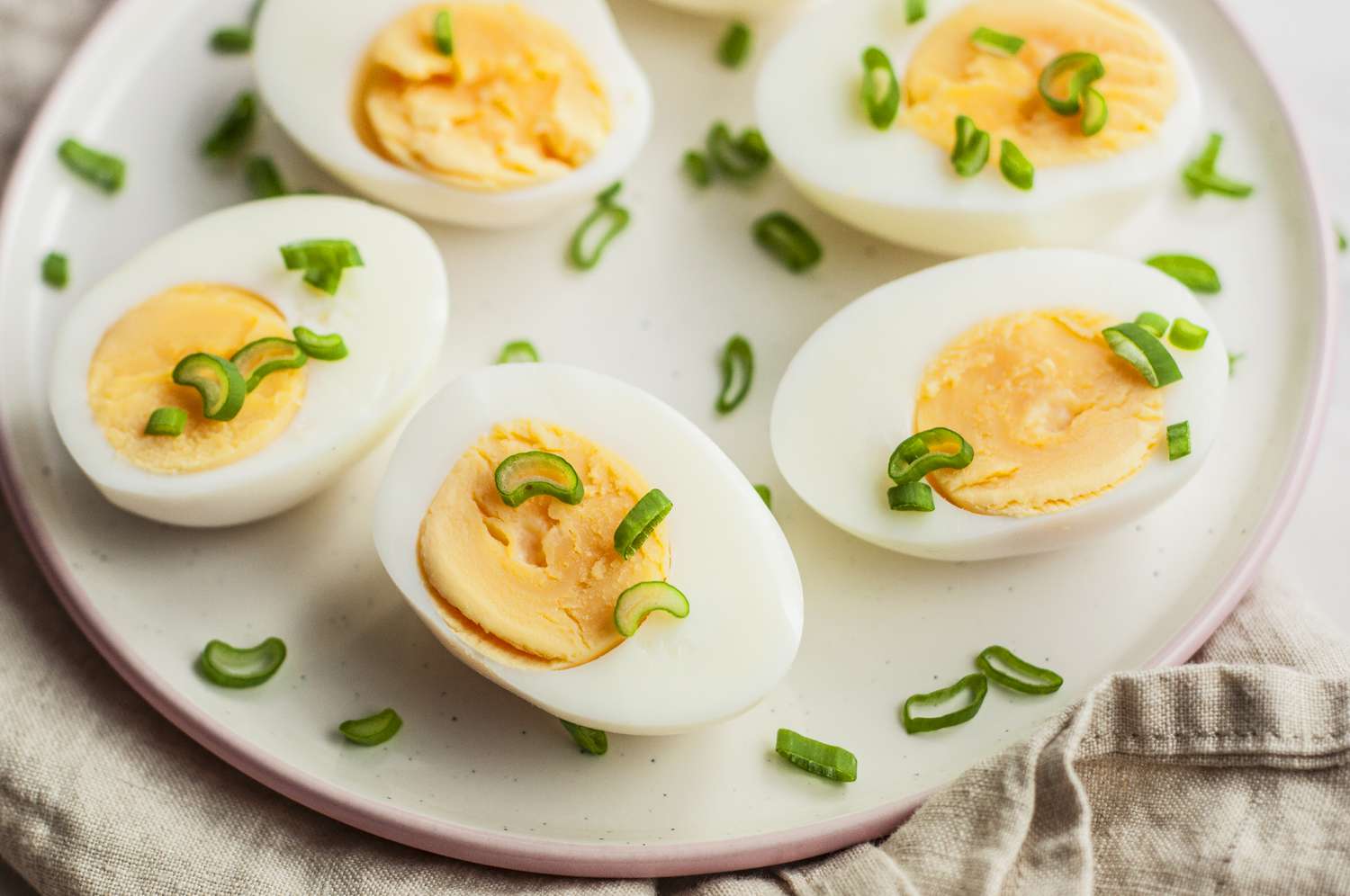
Why Do Some Eggs Explode In The Microwave?
If you put an egg directly in the microwave without any water, then it may explode due to the rapid heating. This is because the hot air inside the egg expands faster than it can escape, causing pressure to build up until it explodes. To prevent this from happening, always remember to submerge the eggs in a bowl of water before cooking them.
How To Hard Boil An Egg In A Microwave?
Hard boiling an egg in a microwave is simple and easy. All you need to do is add some water and white vinegar to a bowl, gently place your eggs in the water, cover them with a lid, place the bowl in your microwave oven, and then cook on high power for approximately 3 minutes. The result should be perfectly cooked hard boiled eggs that are ready to eat!
How Long Should I Boil An Egg In The Microwave?
In general, it takes about 3 minutes on high power to hard boil an egg in a microwave. However, for larger eggs or higher wattage microwaves you may need to increase the cooking time by 15-30 seconds. It is also important to note that the hardness of your boiled egg can vary depending on how long it’s cooked and whether you use cold or warm water when you start. To get consistent results, we recommend experimenting with different cooking times and water temperatures until you find the perfect combination for your eggs.
Tips And Tricks For Perfect Hard Boiled Eggs In The Microwave
Now that you know more about can you hard boil an egg in a microwave, let’s explore tips and tricks to make it more perfectly.
- Don’t overcrowd the bowl. Only put in as many eggs as can fit comfortably in one layer.
- To keep the eggshells from cracking, add a few drops of white vinegar to your water before you begin cooking.
- If you want to avoid any mess, use a splatter guard or paper towel over the top of the bowl.
- If you’re not sure if your eggs are done, remove one egg and break it open. If it’s still liquidy, then put it back in the microwave for a few more seconds.
- For best results, always place your hard boiled eggs in cold water after cooking to stop them from continuing to cook.
- To make peeling your eggs easier, roll them lightly on a flat surface before you start to peel.
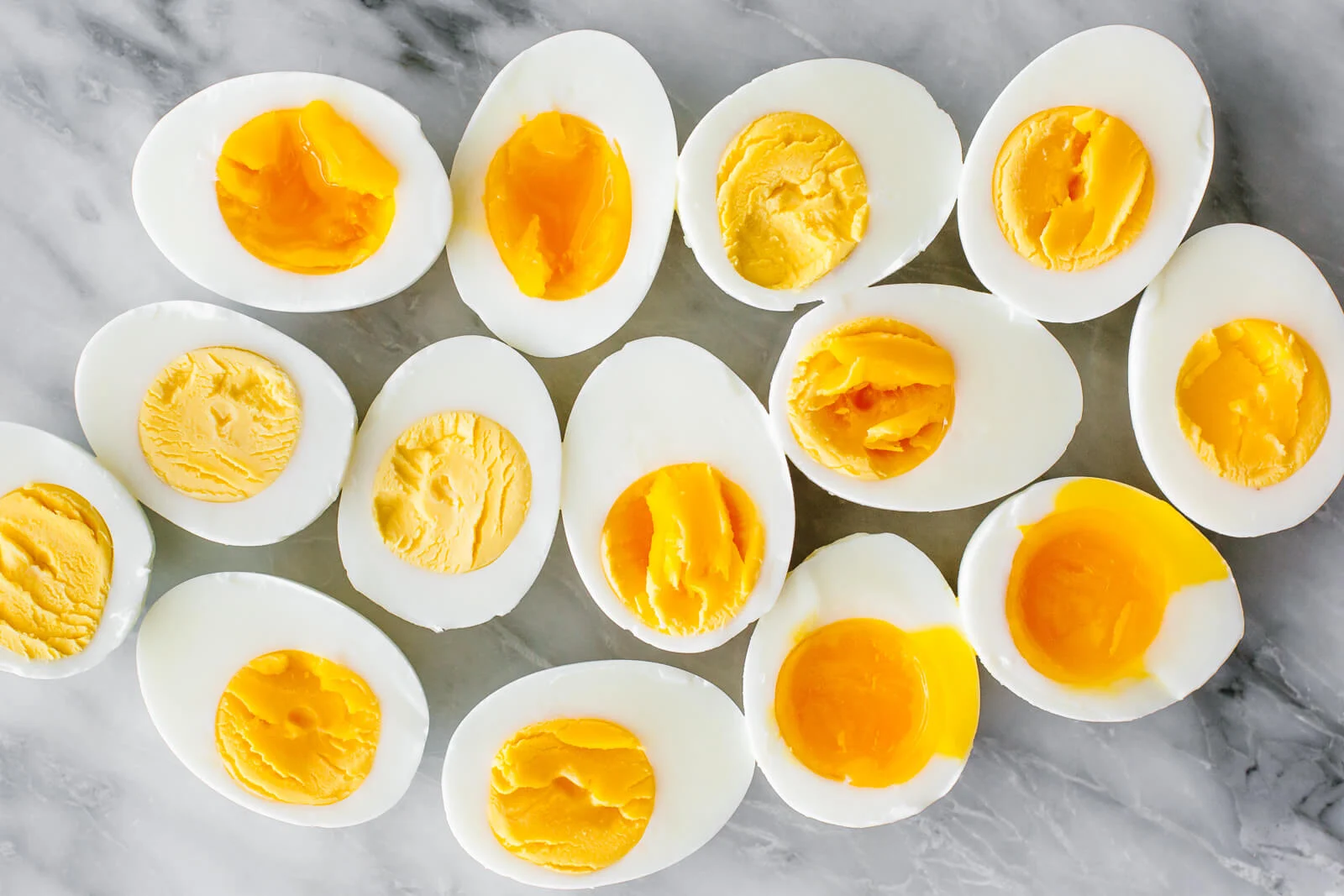
What Can You Do With Hard-Boiled Eggs In The Microwave?
The possibilities are endless when it comes to hard-boiled eggs! You can eat them as they are (with a sprinkle of salt or pepper for added flavor) or use them in recipes such as deviled eggs, egg salad, and egg sandwiches. Hard boiled eggs also make great toppings for salads and soups, and they can even be turned into delicious snacks like egg pancakes and egg muffins. Whatever you decide to do with your boiled eggs, we’re sure that they will be delicious.
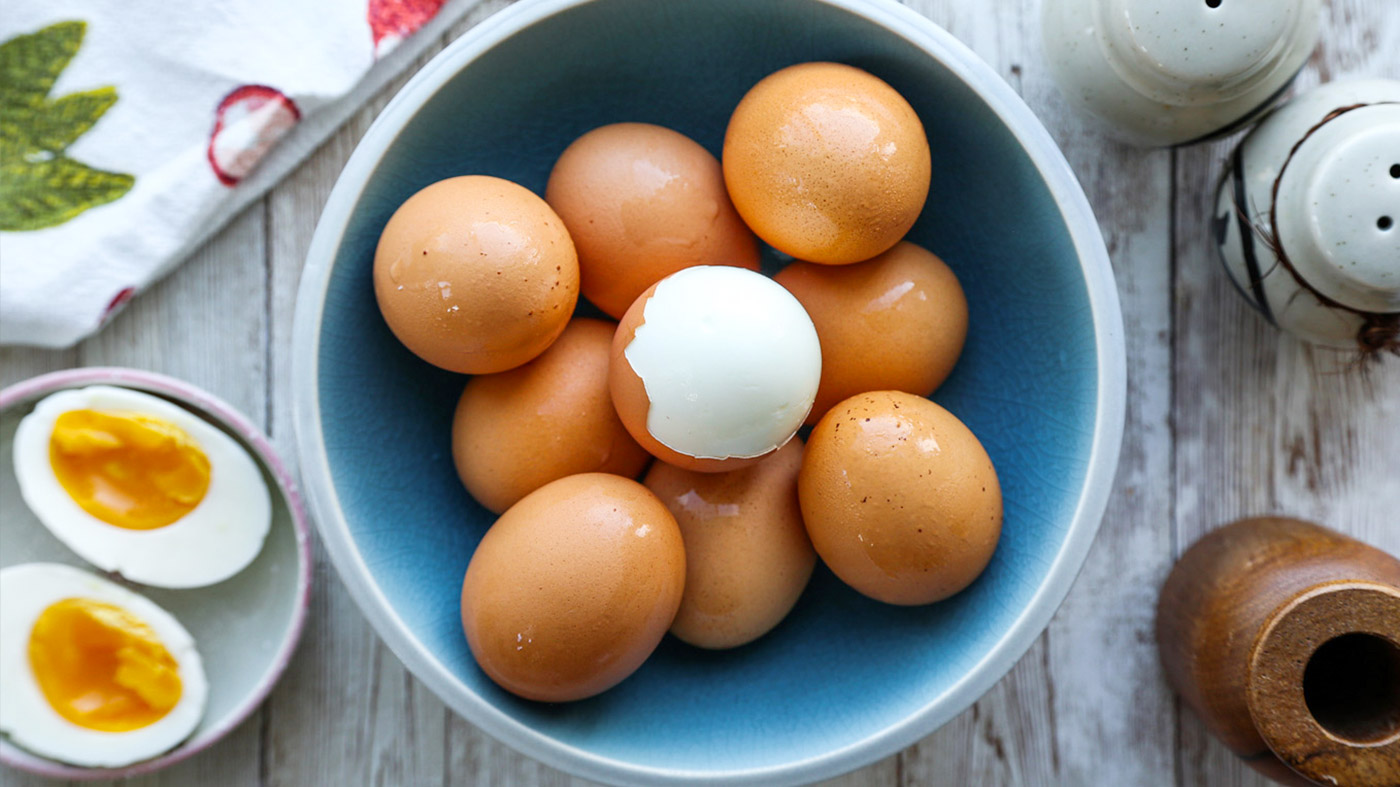
Conclusion: Can You Hard Boil An Egg In A Microwave?
Now that you know the answer to the question can you hard boil an egg in a microwave. Hard boiling an egg in a microwave is easy and convenient, and it ensures that your eggs will be perfectly cooked every time. Just remember to start with cold water, don’t overcrowd the bowl, use a splatter guard or paper towel, and check on your eggs regularly. With these tips in mind, you can have delicious hard boiled eggs ready in minutes! Thank you for reading at yongkangstreetnyc.com.
FAQs: Boiled Eggs In A Microwave
Is 10 minutes long enough to hard boil an egg in a microwave?
– 7 minutes: Soft and runny yolk with a firm white
– 8 minutes: Jammy and soft yolk, still not liquid
– 10 minutes: Mostly cooked through with a slightly soft center
– 12-13 minutes: Fully hard-boiled without being overcooked
How do you hard boil eggs for 20 minutes in a microwave?
Place eggs in a saucepan. Fill the pan with cold water, making sure the eggs are covered by at least one inch. Heat the water over medium heat until it reaches a full rolling boil. Let the eggs cook for 15 seconds. Remove the pan from heat, cover it with a lid, and leave it for 20 minutes.
What happens if you hard boil eggs for 45 minutes in a microwave?
According to expert food scientist Shelly McKee, this extended boiling time actually leads to the expulsion of moisture from the egg. As the proteins in the egg white constrict, they force out the water trapped within the egg.
What makes hard-boiled eggs in a microwave easier?
Make hard-boiled eggs effortlessly peelable with a simple trick. By adding white vinegar or apple cider vinegar to the boiling water, you can achieve softer and more easily peeled eggshells. This is due to the acid in the vinegar dissolving the calcium carbonate, which forms the hard exterior of the egg.
Is it safe to hard boil eggs in a microwave for 4 minutes?
4 minutes for a slightly set yolk and set white. 5 minutes for a medium cooked with a firmer yolk and white. 6 minutes for a hard-boiled egg with a lightly soft yolk. 8 minutes for a firmly hard-boiled egg.
Is 20 minutes too long to boil eggs in a microwave?
For a small batch of one to four eggs, bring the water to a rolling boil, cover the pot, and simmer on low heat for 12-14 minutes. For a larger batch of five to eight eggs, cook for 15 to 18 minutes. And for a larger batch of nine to twelve eggs, cook for 20 minutes. Once cooked, transfer the eggs to a bowl of ice water.
What are two problems you want to avoid when hard boiling an egg in a microwave?
First, ensure your eggs are crack-free for optimal cooking. Secondly, prevent the unappealing green layer that sometimes forms around the yolk. And remember, avoid adding salt to the water as it can lead to rubbery egg whites.
Can we eat hard boiled egg in a microwave after 12 hours?
Hard-boiled eggs, when cooled rapidly and refrigerated in their shells, should be eaten within a week. However, if the eggs have been peeled and stored in the refrigerator, they should be consumed within 48 hours to prevent any potential growth of microorganisms on the exposed moist egg white surface.
Why won’t my hard-boiled eggs peel in a microwave?
Delish recommends adding a teaspoon of baking soda to the boiling water to effortlessly remove the shell. The alkaline properties of baking soda loosen the egg whites from the shell, simplifying the peeling process.
Should you peel hard-boiled eggs in a microwave right away?
To keep hard-boiled eggs fresh and intact, it’s recommended to store them with their shells on. The outer layer acts as a shield, offering protection. Additionally, allowing them to cool in the refrigerator makes them easier to peel later on.
Why add vinegar to hard-boiled eggs in a microwave?
Adding vinegar to the boiling water not only makes the eggs easier to peel, but it also enhances their texture. The acid in vinegar works to dissolve the calcium carbonate in the shell, while also accelerating the setting process of the egg whites. As an added tip, running the eggs under cold water while peeling aids in the separation of the shell from the membrane. Master the art of easy-peeling hard-boiled eggs with this vinegar technique.
Should I run cold water over hard-boiled eggs in a microwave?
For the best results, leave your hard-boiled eggs in an ice bath for at least 10 minutes. This will ensure thorough cooling and make peeling easier. Alternatively, you can use running cold water, but keep in mind that without the cold shock from the ice bath, peeling might be more difficult, especially if your eggs are farm fresh.

Chef Yong Kang has over 20 years of experience cooking in the finest restaurants, and is excited to present their vision to you and all our guests. Our caring and committed staff will ensure you have a fantastic experience with us.
We are also available for private events:, business lunches, dinners, and more. We would love to discuss how to be a part of your next event.Our restaurant refuses to compromise on quality, which is why we source our fresh ingredients from local farmers’ markets.








